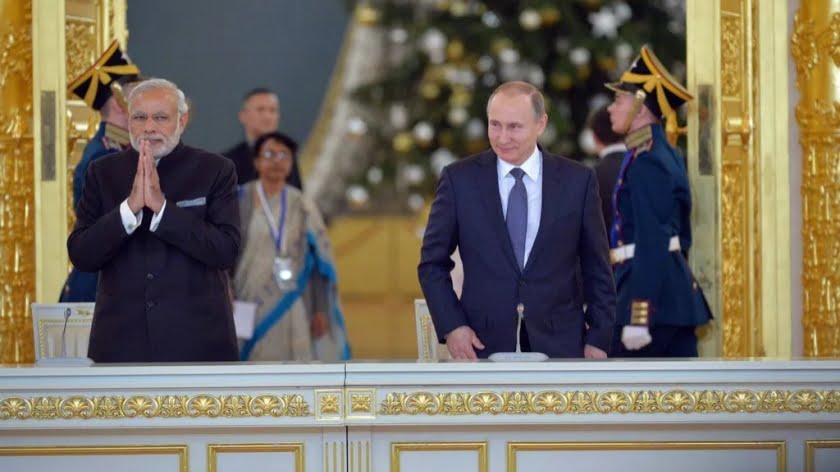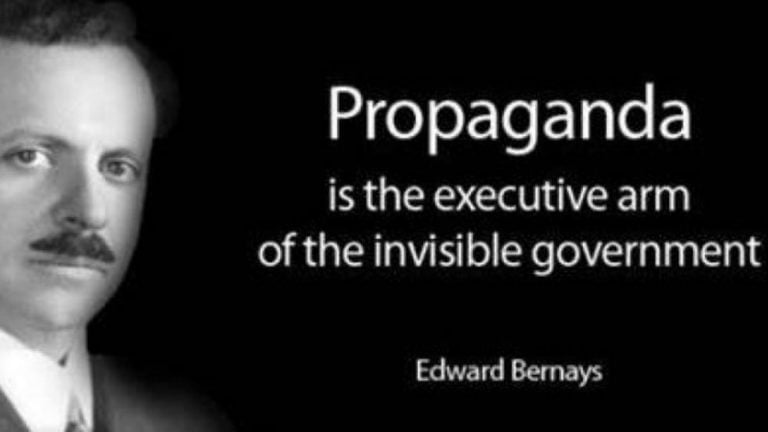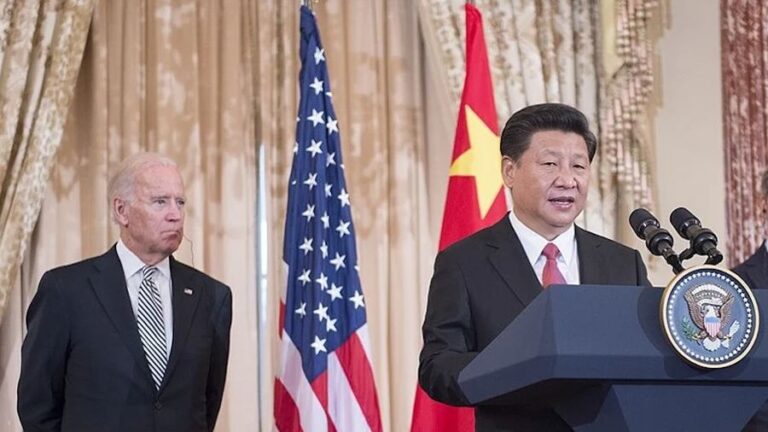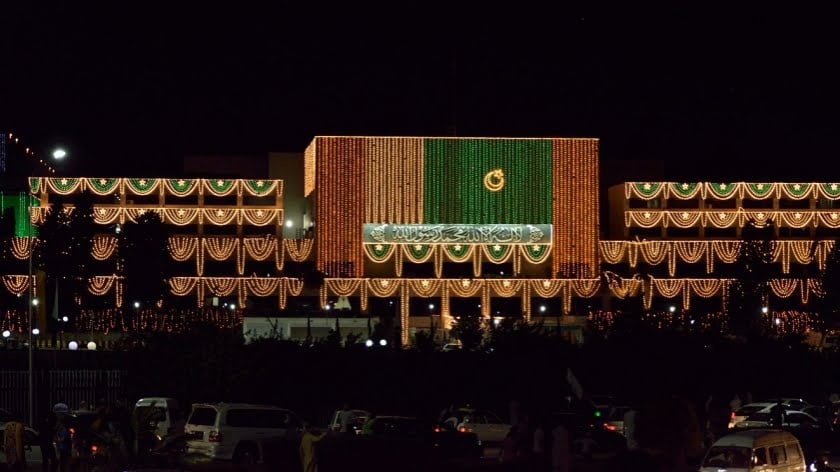India’s Ambassador to Russia Lied About Rejecting International Mediation
The Chinese Foreign Ministry, the Emirati Ambassador To India, and several unnamed US diplomatic sources all released statements around the same time disproving the Indian Ambassador to Russia’s previous on-the-record statement that “no country has offered to mediate between India and Pakistan” and that his government “will not accept” any such offer even if it was made, making one wonder whether New Delhi’s highest-ranking diplomat in Moscow lied as shamelessly as he did in a desperate attempt to “save face” for shockingly shooting down Russia’s mediation interest despite secretly accepting other countries’ diplomatic assistance in this respect instead.
America Cracks The Whip
The Indian Ambassador to Russia was just caught red-handed shamelessly lying to his host country after he went on record a few days after Foreign Minister Lavrov expressed his interest in having Russia mediate between India and Pakistan to shockingly shoot down the peacemaking proposal by what his government misleadingly portrays as its closest international partner, saying in no uncertain terms that “no country has offered to mediate between India and Pakistan” and that his government “will not accept” any such offer even if it was made. It’s now been revealed that Ambassador D. Bala Venkatesh Varma wasn’t telling the truth after Reuters released a report this weekend citing several unnamed US diplomatic sources who alleged that Washington intervened to crack the whip and get its new military-strategic ally to back down from its threat to launch missiles against Pakistan and escalate the unprovoked crisis with its neighbor to the dangerous level of risking a nuclear war.
India’s Secret Diplomacy Deliberately Snubbed Russia
Evidently, it seems that while the US probably greenlit India’s dramatic but ultimately fake “surgical strike” stunt against Pakistan in a bid to improve Modi’s reelection prospects and send negative fake news signals about the viability of CPEC, it didn’t approve of New Delhi responding to the epic humiliation of the Pakistan Air Force shooting down one of its counterpart’s “vintage” (but possibly upgraded) Russian jets by irresponsibly taking tensions to the next level, suggesting that Modi might have “gone rogue” from even his American handlers and seriously considered starting World War III for a brief moment. Before National Security Advisor Bolton’s reported intervention, it’s now known from the Emirati Ambassador to India that Crown Prince Mohammed Bin Zayed “had a telephonic conversation with Prime Minister Modi and the Pakistani PM Imran Khan” “on the day of the huge escalation”, and the Chinese Foreign Ministry officially said that it “pro-actively promoted peace talks” between the two nuclear-armed rivals.
All of this proves beyond any credible doubt that the Indian Ambassador to Russia was lying when he said in early March a day after Wing Commander Abhinandan’s release and the consequent de-escalation of the crisis that “no country has offered to mediate between India and Pakistan” and that his government “will not accept” any such offer even if it was made despite it now being known that New Delhi had secretly accepted other countries’ diplomatic assistance in this respect instead, even including its chief geopolitical rival China’s though stunningly not its “bhai” (“brother”) Russia’s. This suggests an attempt on the part of India’s permanent military, intelligence, and diplomatic bureaucracies (“deep state”) to deliberately snub Russia after Lavrov unintentionally “offended” them by challenging the ruling BJP’s self-assumed supremacist stance against Pakistan by treating the two countries as international equals by expressing an interest to mediate between them. Curiously, New Delhi seemingly didn’t care that others did this too and only singled out Russia.
Bhadrakumar’s Insight Into The Indian “Deep State”
The reason why it was “unforgivably offensive” for Russia to hold this implied position as opposed to any other country doing the same is because India assumed that it could “buy off” Russia’s support through multibillion-dollar arms deals and therefore get it to sacrifice its geostrategic interests in the global pivot state of Pakistan as a result. This isn’t just the author’s own interpretation but it also reflects the one that career diplomat, Indian “deep state” insider (especially regarding the attitude of his government’s multipolar-leaning faction towards Russia), and well-known columnist on international affairs Mr. M.K. Bhadrakumar recently wrote in his article for The Tribune about “The big let-down”. This highly respected expert has an extensive track record of Russian-friendly analyses but suddenly switched his tune in the aftermath of “The Latest Kashmir Crisis Proving That India, Not Pakistan, Is The Real Rogue State” by lashing out against the Russian people for what he disrespectfully described as their “notorious avarice”:
“What comes as a total surprise is in regard of the Russian attitude. Moscow’s mediation offer is not the point here, but its demonstrative attempt to be ‘neutral’. The mega multi-billion dollar arms deals that the Modi government presented to Russian vendors, defying the threat of US sanctions, have apparently not placated the Kremlin. Curiously, the Kremlin-funded news channel RT featured a half-hour interview only last week with former Pakistani foreign minister Hina Rabbani Khar fulminating against Modi, Indian media and politics, and Hindutva meta-nationalism. Why are Russians so mighty upset? It must have something to do with money. Is it about Essar Steel not going to the Russian bidder? Or, about Saudi Aramco likely trumping Gazprom in the race for the highly lucrative Indian retail energy market? Or, about some pending arms deal? No matter the notorious Russian avarice, Moscow’s choice to ‘balance’ between India and Pakistan when Delhi needed its support most is the unkindest cut of all.”
Mr. Bhadrakumar’s ad hominem attack against the same people with whom he spent a large portion of his entire career building bridges was apparently triggered by his “total surprise in regard” to “[Russia’s] demonstrative attempt to be ‘neutral’” in spite of “the mega multi-billion dollar arms deals that the Modi government presented to Russian vendors”, which actually shouldn’t have been unexpected at all for a man who served in Russia for slightly less than half as many years as I am old had he been following the many articles that I’ve written about this topic and which I compiled in my recent piece about how “Russia Officially Returns To South Asia By Offering To Host Indo-Pak Peace Talks” that was released a full half-month before his “big let-down” article. It’s not that Mr. Bhadrakumar isn’t aware of my work either since he wrongly speculated about the intention of one of my older pieces, which I clarified last year.
“The Unkindest Cut Of All”
Mr. Oleg Barabanov – a programme director at the Valdai Club (Russia’s most prestigious think tank), a professor at the Moscow State Institute of International Relations (MGIMO, which is run by the Ministry of Foreign Affairs), and a professor at the Russian Academy of Sciences – raised a very relevant point earlier this month in his recent analysis about “Russia and the Search for Balance Between India and Pakistan” when he wrote that “Sometimes the Indian expert community expresses mistrust of Russia because of what they consider the excessively close Russia-China partnership, as a result of which Russia is losing its independent political image in India. Obviously, viewing Russia exclusively through the prism of Indo-Chinese divergences does not promote trust. Thus, US policy in the region (and probably the potential Indo-US link) serves as an additional external impetus for Russia-Pakistan dialogue.” As Mr. Bhadrakumar’s words prove, Mr. Barabanov was entirely right, but even more so than he could have imagined.
Bearing in mind the Valdai Club expert’s piercing insight into one of the many recent US-encouraged problems plaguing Russian-Indian relations and recalling how “Russia Regards The ‘Indo-Pacific Region’ As An ‘Artificially Imposed’ Pro-US Concept” to “contain” China, “the unkindest cut of all” (to channel Mr.Bhadrakumar) is that the Indian Ambassador to Russia shamelessly lied to his host country about the apparent absence of any previous mediation proposals when shooting own Moscow’s own informal one despite having already secretly relied upon the diplomatic services of the US, the UAE, and even India’s chief geopolitical rival China. There couldn’t be any stronger signal from India to Russia that their Soviet-era “brotherhood” is over and that their strategic partnership is now purely transactional after losing the “romantic allure” that it once held for decades in the minds of both of their “deep states” (contrary to whatever “feel-good” rhetoric they might each espouse during this “sensitive” time).
Concluding Thoughts
There’s no doubt that India will continue to be one of Russia’s priority partners for the indefinite future by virtue of its enormous market size and the billions of dollars’ worth of military deals that they agreed to in the past six months alone, but the mutual trust that they enjoyed during the Old Cold War days of “Rusi-Hindi Bhai Bhai” (“Russians and Indians are brothers”) is forever lost after New Delhi succumbed to the pressure of its new American patron by deliberating snubbing Russia from the international mediation process with Pakistan. Even worse, the Indian Ambassador to Russia flat-out lied about the secret diplomatic assistance that his country received from others in this respect, with it later being revealed that even India’s chief geopolitical rival China played a role in the same process that New Delhi denied its “bhai” Moscow a chance to participate in. In response, Russia is expected to “recalibrate” its regional “balancing” strategy in the direction of its newfound Pakistani strategic partner.
By Andrew Korybko
Source: Eurasia Future








Nicky (Nimrata Randhawa) Haley taught me that no EAST Indian can be trusted
In a world where lying is considered a ‘virtue’ by way of the fruit it bears, why should this come as a surprise? Only that it got exposed. Not that getting exposed will do any harm to the audacity with which India lies but for those who like to keep sitting on the fence vis-a-vis India’s ‘innocence’ such exposes may just help with decision making.